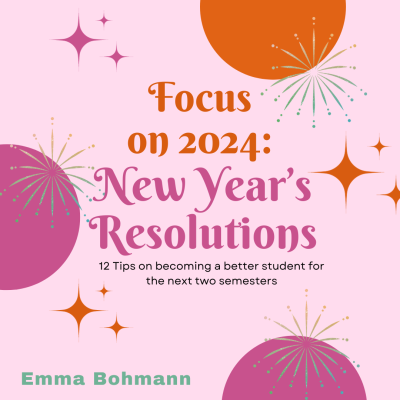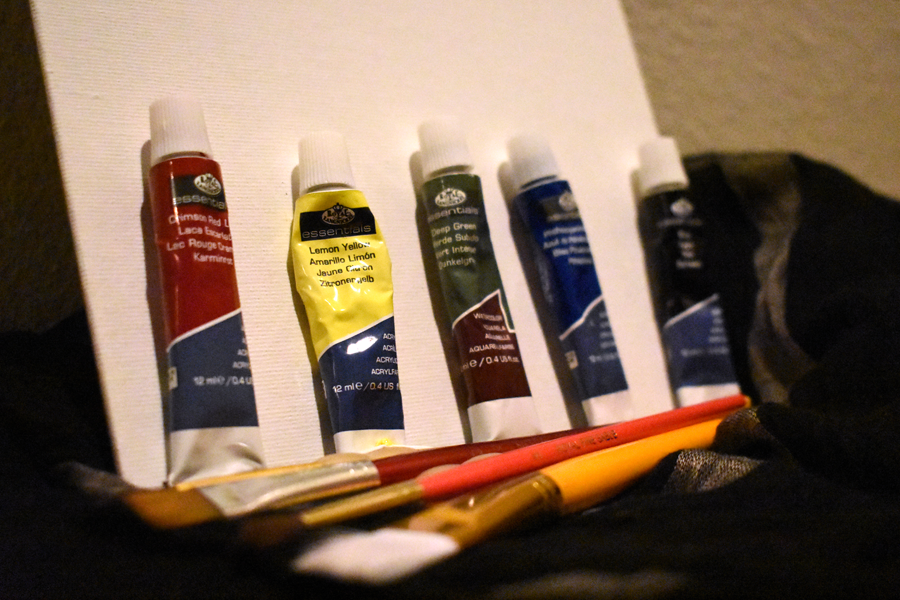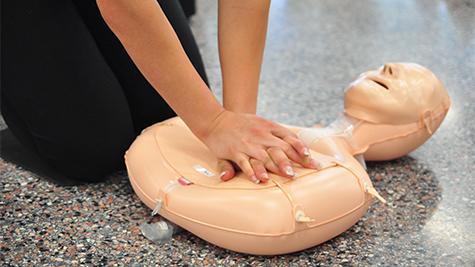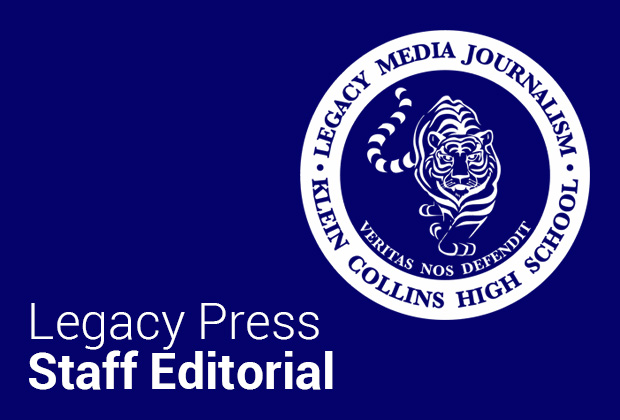
The first few days of January each year are full of promise. The glittering Times Square ball drops, and everyone begins making their resolutions right away. Some years, you might have resolved to work out more, get better grades, or finish your endless to-be-read list.
The thing about New Year’s resolutions, though, is that they are more known for not being met than they are for being made. Why is it that, around seven days into the year, everyone jumps off their treadmills, puts down their books, and picks up the remote to rewatch “Friends”?
The problem, especially for students, is lack of focus. Everything in our world is covered with a flashing color screen. They stuck iPads on cars, Pelotons, and even refrigerators; how can anyone be expected to pay attention to their goals?
If you feel stuck under a pile of unmet resolutions, you’re not alone. There are resolutions, though, that you can make to improve your focus – then, you can meet any aspiration you set your mind to.
When it’s time to study, your phone isn’t your buddy
This might seem like an obvious goal to have. Don’t go on your phone when you do homework. Easy, right? So why don’t more people do this?
Putting your phone away during study time can be hard for several reasons. Maybe you need to use Photomath, or listen to music, or text your friends for answers… but none of those things are helping you study, and none of them are necessary.
Have your parents or siblings take your phone to another room, or put it in a drawer. No Airpods, no notifications, and no distractions. See how much you get done.
Drink more water to improve your focus (https://neuroscience.illinois.edu/news/2019-11-14t191552/water-helps-kids-focus-improves-ability-multitask-study)
Several studies such as the one listed above have linked focus and brain function to increased hydration. The key to better note-taking, test grades, and homework might be sitting in a bottle right in front of you. Hydration is also known to improve physical health, so this resolution is a two-in-one.
Read more books to build your reading stamina
It’s no secret that high school students are becoming less and less capable or willing to tackle assigned reading. Online keys and other shortcuts make reading unattractive during stressful, busy times. However, actually reading assigned material (and unassigned material) is vital to gaining knowledge. It’s likely that you have a gap somewhere in your reading education, though, because of all the time spent learning online, or that you just find large amounts of reading daunting. Reading stamina does not come naturally, so one way to build it up over time is to pick up increasingly difficult texts, one after the other. Give yourself a timeframe for each book, and make it shorter each time. Before you know it, quizzes will be a breeze because you will be able to comprehend the textbook.
Have active recall study sessions to remember concepts and vocabulary
Do you feel like you leave every lecture class not having any idea what you just learned? If you share a class with a friend, something to try out is active recall, where you either write down or say out loud the answer to a definition or piece of information. You can’t reference anything, you just have to rely on what you remember. Having these sessions after class will motivate you to listen for items to remember. The active recall practice will reinforce your memory of those items.
Pay attention to current events to feel more connected to your education…
Many students do not take the extra step to be interested in current events, which is totally understandable. With peer groups, homework, jobs, and extracurriculars, how is there time to watch the news or read about issues in the world? This is true, but actively listening to current issues like legislation, political conflicts, and international disputes can actually help bridge the gap between your unrelatable course work and the world you live in. History, English, and even science classes all have the potential to explain the things that happen today, if you’re willing to listen.
…But remember to disconnect from your phone and reconnect with family
Current events are important, but obsession with headlines or live tweets can only make your phone addiction worse. Remember to put your phone down when things become too much. Spending extra time with family and close friends is a great way to improve awareness of your surroundings. Appreciate the people around you and allow them to encourage you to do well this year.
Help younger friends study your old subjects to exercise your brain
Many students complain about having to study subjects that might feel irrelevant to their lives. What they don’t realize is that learning any topic is valuable in that it exercises your brain. Similarly, helping to teach someone else a subject you learned in a previous year can improve your own study skills. It helps you think about logic processes, remember writing skills, and touch base with your memory. If you have a younger sibling or friend who needs guidance in a difficult class that you recently survived, consider being their tutor.
Start caring about how much sleep you get
Almost everyone can recognize this scene: it’s first period, you sit with your friends, and one of them yawns. One tells you they only got five hours of sleep the previous night. Another chimes in, almost as a challenge, and says that they only got four. Somehow, each friend got less sleep than the others. When did it become a brag to not be well-rested? Don’t fall into this trap. Care about your sleep. Just like studying, it’s best done without your phone in the room. Start your homework earlier, and streamline your night routine. This one takes discipline, but it pays off in the long run.
Listen to music without lyrics
Remember when the administration started playing classical music on the speaker system during the passing period? It might have seemed silly, but there was a reason behind that. Classical music is said to be better for calmness, but it can also come in handy for the purpose of focus. If you need to listen to music when you study, a good compromise is lyricless music. Lyrics are like a person talking right in your ear as you try to study. Lyricless doesn’t have to mean classical, though; your choices range from instrumental pop to jazz to big-band orchestral music. Again, you’re sure to find yourself much more focused on the right thing.
Put your laptop away during lectures
Depending on your current views on big tech, you might either see modern technology as the best thing ever or the spawn of evil. No matter what you say, though, you have to admit: laptops are really distracting. One minute, you’re listening to the teacher, but the next, you have a new high score for online chess. These things happen. One way to prevent that and improve your focusing skills is by simply closing your laptop. Figure out paper notes. Your grade will thank you.
Look for one interesting thing to learn each day
This one might come across as a little cheesy, but bear with me. You won’t be in high school forever, and by the time you leave, you might regret not taking advantage of the opportunity to learn everyday. A good way to focus and to take advantage of your youth while you’re young is by writing down something interesting you have learned each day. This way, similar to active recall, you’ll keep an ear out for a fun fact during class, and maybe pick up a few extra on the way.
Let yourself be bored
The biggest contributor to your inability to focus might not be something as easy or fixable like screen time or not reading. It could be something that started long before high school: being constantly kept busy by your parents. You may make fun of iPad kids now, but they’re only a mutation of what this generation was before them. If you didn’t have the TV blasting “Dora”, you were spending hours at sports and clubs. If you weren’t at your friend’s house, you were playing computer games. You might have been set up from the beginning; maybe you never knew how to be bored. Maybe you’re so used to having a bright colorful screen that you lose concentration when it goes away. It’s okay; this is a problem everyone faces. The best resolution you can make in 2024, though, is not to do more, watch more, or engage more. It is to do less. It is to be alone, even just a handful of times, with nothing to do but think, read, or write. Allow yourself to recollect when your stress is bigger than you. Before you pour yourself into academics, hobbies, and other people, remember to reconnect with yourself, without any distractions. Then, your other resolutions will fall into place.









